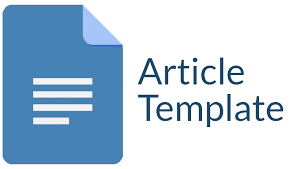ANALISIS PERAN AKTOR DALAM KOLABORASI PENYEDIAAN PERMUKIMAN LAYAK HUNI DI KOTA SURABAYA (STUDI KASUS PADA PROGRAM DANDAN OMAH)
DOI:
https://doi.org/10.26740/publika.v12n4.p957-968Keywords:
Actor Role, Collaboration, Dandan Omah ProgramAbstract
In 2022, the Surabaya City Government launched the Dandan Omah program which is a continuation of the modified uninhabitable housing social rehabilitation program with a new concept. In its implementation, the Surabaya City Government collaborated with external parties, namely the Surabaya City Baznas, the Manarul Ilmi Foundation and KTPR. The purpose of this study is to identify the roles of actors involved in the collaboration in providing habitable housing in the city of Surabaya. This research is a type of qualitative research with a case study approach with content analysis techniques. The analysis was carried out by compiling a content analysis matrix to obtain positive and negative sentiments from each substance obtained from sources and from other supporting data. Data were collected through interview instruments, observation and documentation. The focus of the research is the role of actors consisting of 5 dimensions, namely: 1) policy creator; 2) coordinator; 3) facilitator; 4) implementor; 5) accelerator. The research findings show that the role of policy creator is carried out by the Surabaya City DPRKPP by developing a funding scheme outside the APBD through collaboration. The role of the Coordinator is carried out by the Surabaya City DPRKPP by providing written or unwritten information to other actors. The role of Facilitator is carried out by DPRKPP Surabaya City, Baznas Surabaya City, YMI ITS. The role of implementor is carried out by DPRKPP Surabaya City, Baznas Surabaya City, YMI ITS and KTPR by implementing the program according to mutual agreement. The role of Accelerator is carried out by DPRKPP Surabaya City through the promotion of the Dandan Omah logo on certain souvenirs. Research recommendations for collaborative actors of the Dandan Omah program to create an MoU if there is none and recommend publishing an MoU if there is one as a form of transparency to the public regarding the program run by the government.
Downloads
References
Ansell, C., & Gash, A. (2008). Collaborative governance in theory and practice. Journal of Public Administration Research and Theory, 18(4), 543–571. https://doi.org/10.1093/jopart/mum032
Arif, A. F. N., & Nurwati, N. (2022). Pengaruh Konsentrasi Penduduk Indonesia Di Pulau Jawa Terhadap Kesejahteraan Masyarakat. Jurnal Ilmu Kesejahteraan Sosial HUMANITAS, 4(I), 54–70. https://doi.org/10.23969/humanitas.v4ii.3920
Dr. Sandu Siyoto, SKM, M. K., & M. Ali Sodik, M. a. (2015). Dasar Metodologi Penelitian Dr. Sandu Siyoto, SKM, M.Kes M. Ali Sodik, M.A. 1. Dasar Metodologi Penelitian, 1–109.
Febrianti, E., & Eprilianto, D. (2023). Analisis Peran Stakeholderss Daerah Dalam Pengembangan City Branding “Lamongan Megilan.” Publika, 1849–1862. https://doi.org/10.26740/publika.v11n2.p1849-1862.
Miles, Mathew B., Huberman, A. Michael. 1992. Analisis Data Kualitatif Buku Sumber Tentang Metode-Metode Baru. Jakarta: UIP
Ma’ruf, M. F., & Isbandono, P. (2017). Urgensi Kerjasama Antar Daerah (Intergovernmental) Dalam Penanganan Bencana Alam Di Daerah. JPSI (Journal of Public Sector Innovations), 1(1), 47. https://doi.org/10.26740/jpsi.v1n1.p47-54
Muharam, R. S., & Rusli, B. (2019). Implementasi Program Rumah Tidak Layak Huni (Rutilahu) Di Kabupaten Bandung. Konferensi Nasional Ilmu Administrasi, 1–7. http://180.250.247.102/conference/index.php/knia/article/view/31.
Nugroho, H. C., Zauhar, S., & Suryadi. (2014). Koordinasi Pelaksanaan Program Pengembangan Kawasan Agropolitan di Kabupaten Nganjuk. Jurnal Pembangunan Dan Alam Lestari, 5(1), 12–22. https://jpal.ub.ac.id/index.php/jpal/article/view/147
 Abstract views: 226
,
Abstract views: 226
, PDF Downloads: 231
PDF Downloads: 231





